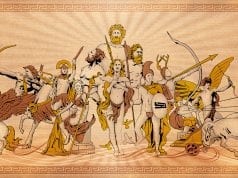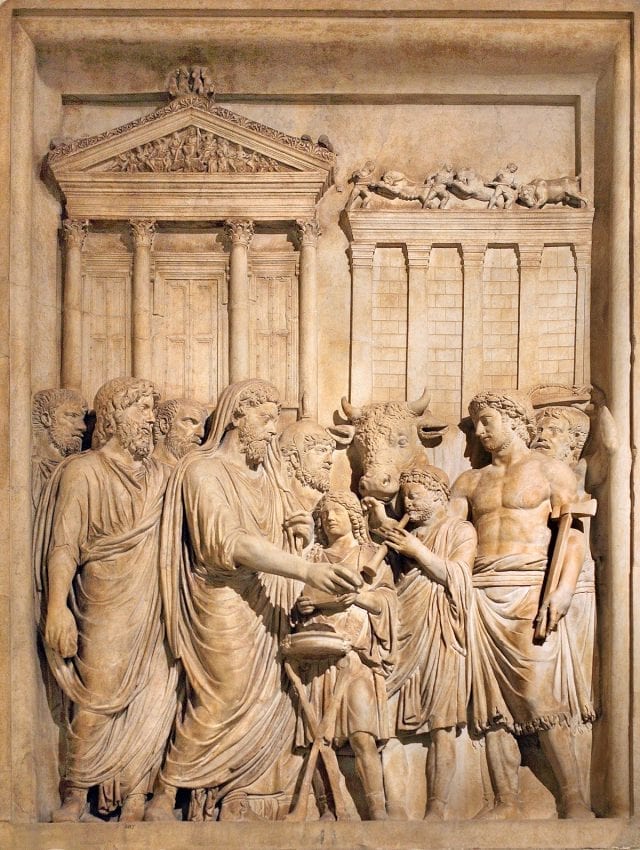
The council of 12 roman gods, or the Dii Consentes, was a group of twelve most important Roman gods, six male and six female ones. There are several stories as to how the council came to existence, but it was most likely modeled on the Greek cult of Twelve Olympians. The other version of events tells a different story.
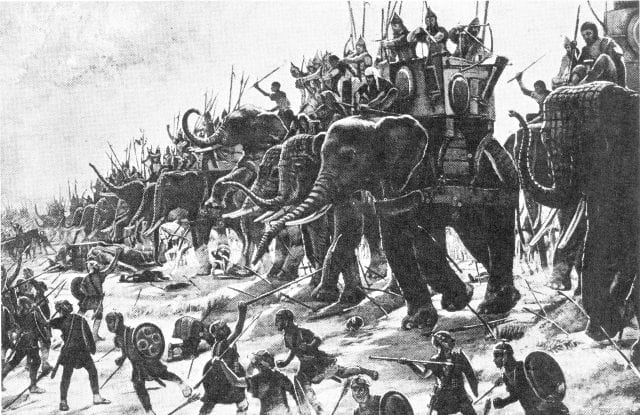
In 216 BC, during the Second Punic War, Hannibal’s invasion of Italy was in full swing. His crossing of the Alps has left Romans completely unprepared for the war on their own soil and he took full advantage of it. They have already suffered two crushing defeats, at Trebia in 218 BC and Lake Trasimene a year later. Hannibal seemed unstoppable. Resolved to expel the Carthaginian army from Italy, Rome gathered another army and sent it to defeat Hannibal.
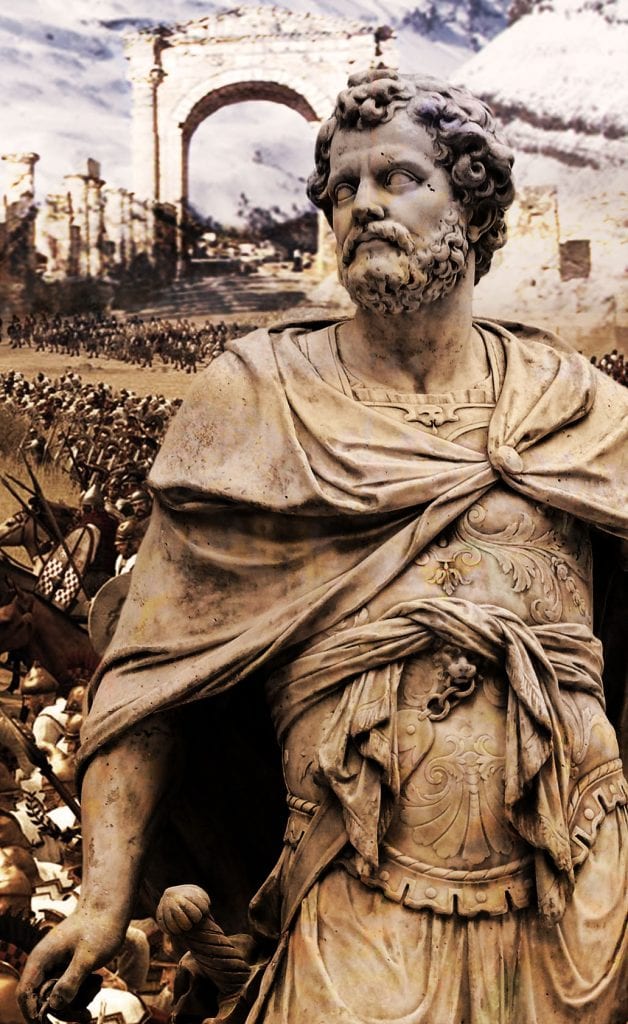
Two armies met at Cannae. Romans, with 90,000 troops, outnumbered 50,000 Carthaginians and their allies almost two to one. But Rome didn’t have Hannibal. The legendary general devised a risky plan, drawing the Roman center deep into his own ranks, while his excellent Numidian cavalry crushed Roman flanks and encircled the bulk of their army, which was then slaughtered. It was one of the greatest tactical achievements in the history of warfare and one of the worst defeats in Roman history. Between 70,000 and 85,000 Roman soldiers were killed on that fateful August day on the plains of Cannae. Nothing stood between Hannibal and the gates of Rome itself.
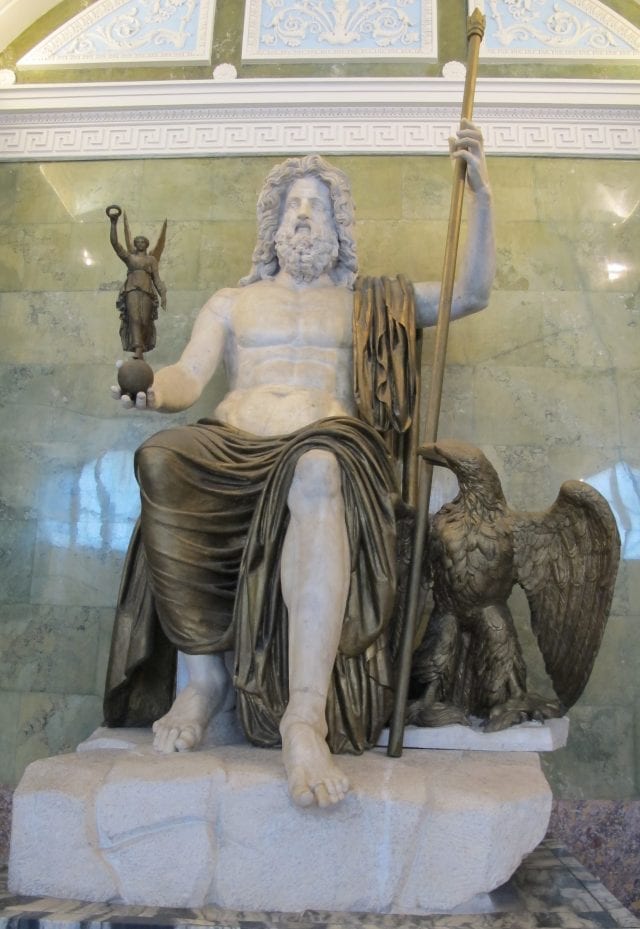
The news of the disaster has thrown the city in turmoil. Allies started deserting their cause and wealthy citizens started fleeing Rome. There were no more recruits to be had, to create a new army. Rome was at the brink of a defeat that would seal its fate as a Mediterranean power and probably erase it from the face of the Earth. In desperation, the Senate turned to the college of high priests of Roman gods. They decided to bring out the statues of twelve most important Roman gods and arrange them in a circle, as if they were having a meeting, in an effort to boost people’s morale and demonstrate the support gods offered to Rome.
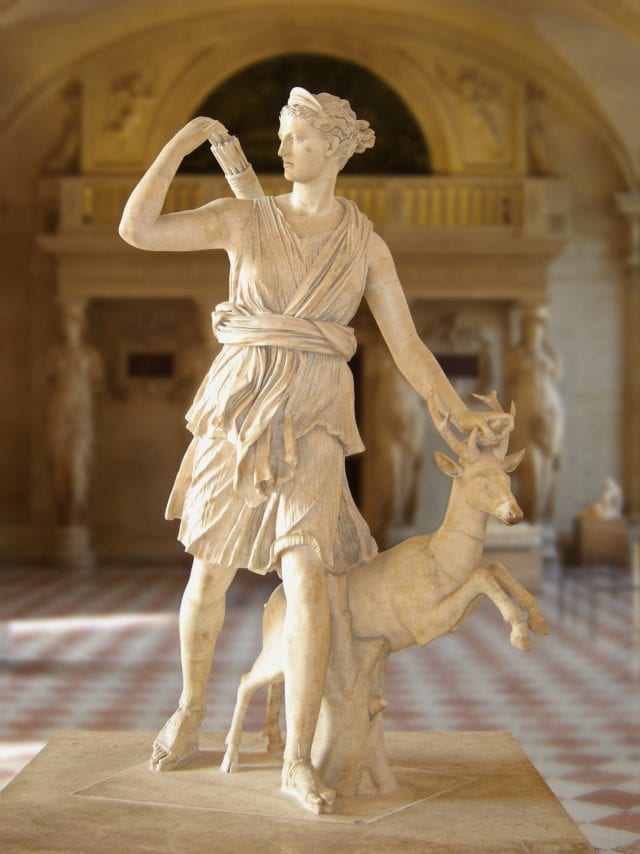
Whether or not this decision had any effect on the eventual Hannibal’s defeat and the destruction of Cartagena is unclear, but the result reinforced the piety of Roman people. The twelve gods were held in high esteem for centuries to come. Gods that supposedly saved Rome from Hannibal were: Jupiter, King of Gods, Juno, Goddess of Marriage, Neptune, God of the Sea, Pluto, God of the Underworld, Apollo, God of Music and Medicine, Minerva, Goddess of Wisdom, Venus, Goddess of Love, Ceres, Goddess of the Harvest, Diana, Goddess of the Hunt, Mars, God of War, Vulcan, God of the Forge, and Mercury, Messenger of the Gods.


